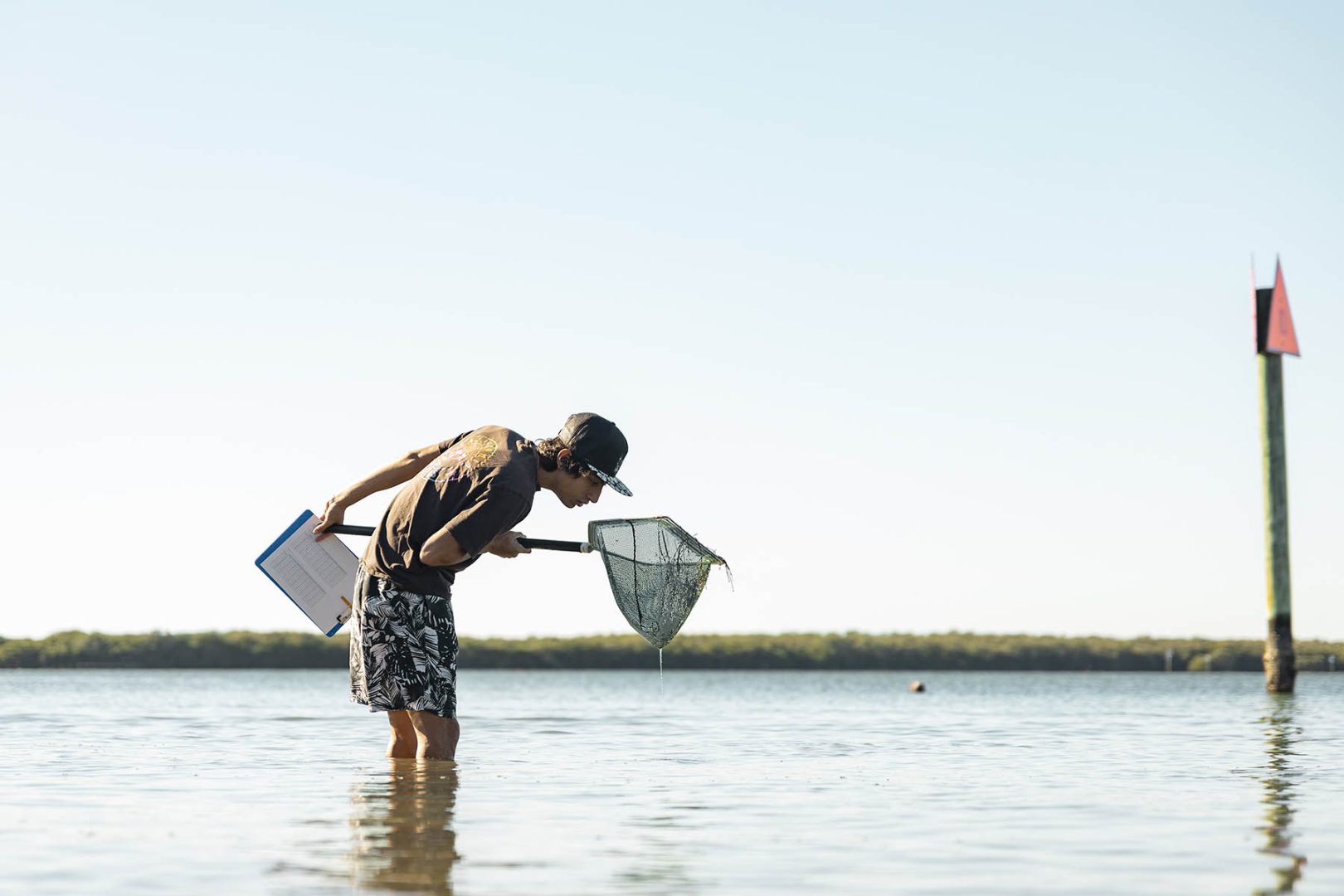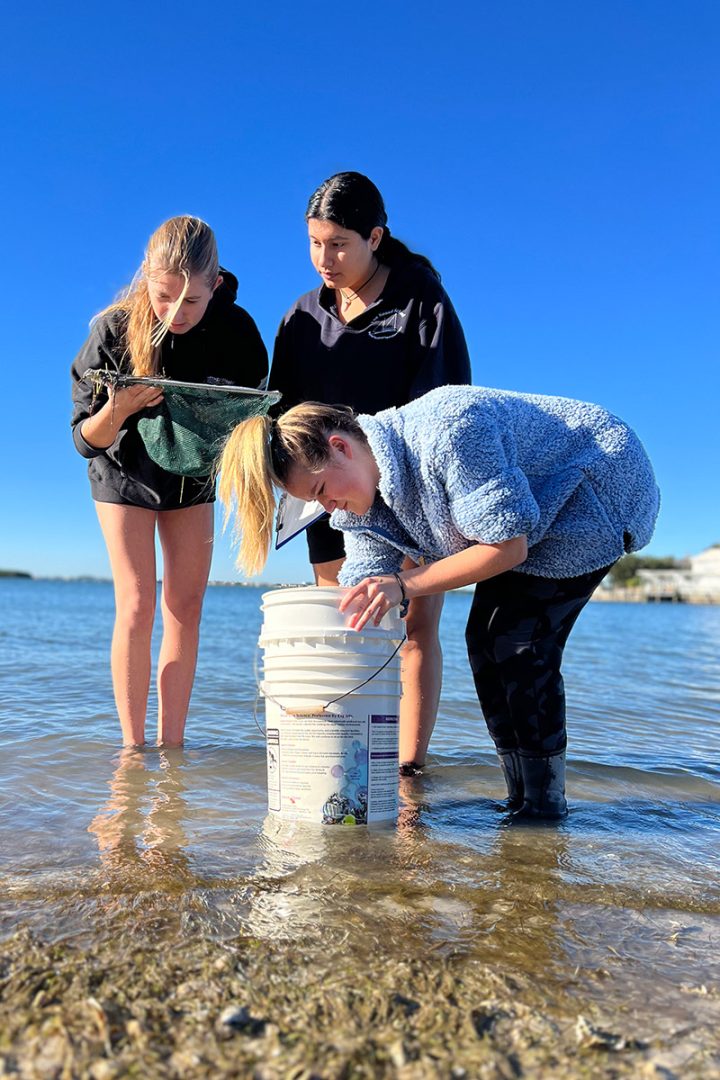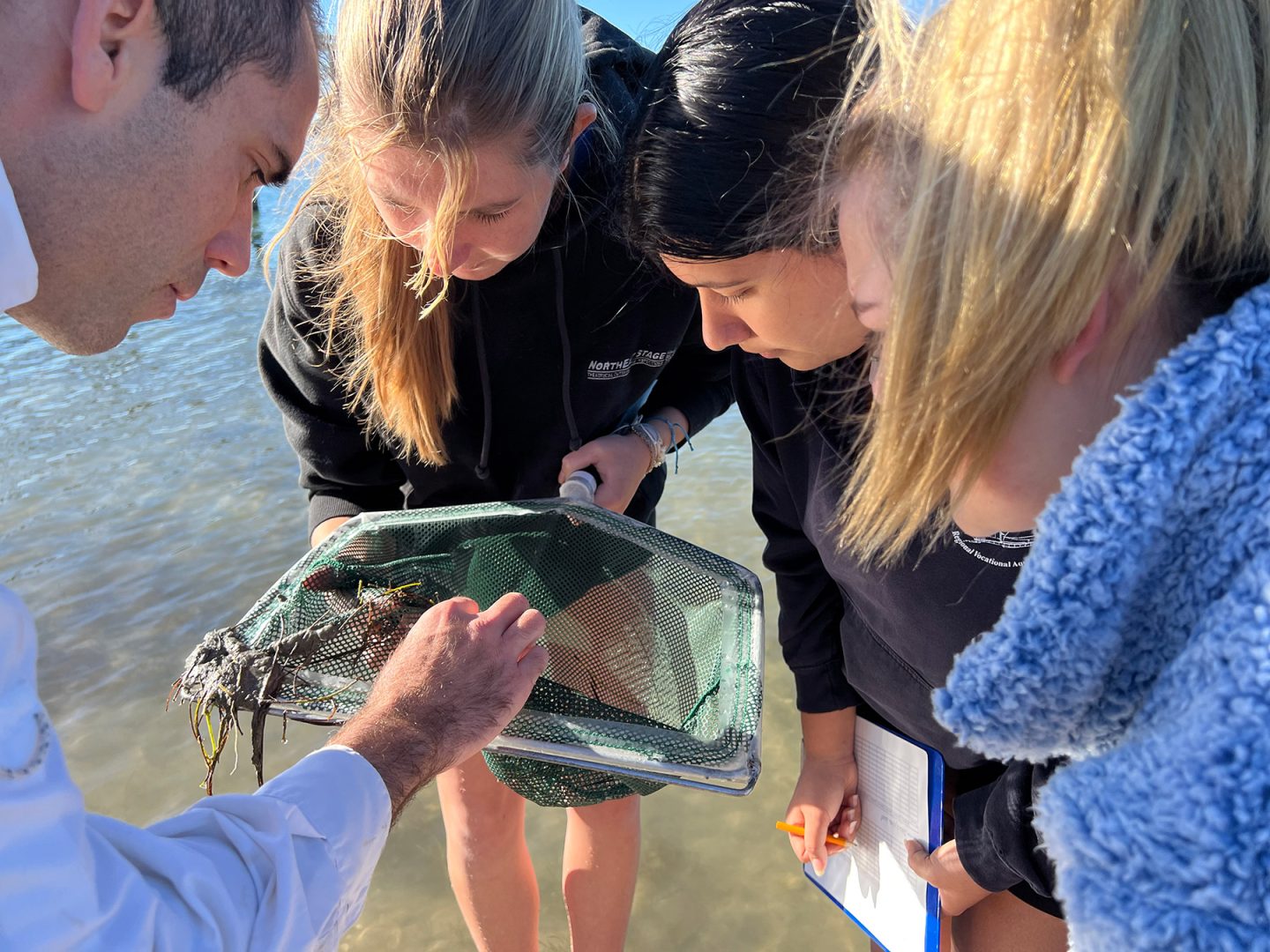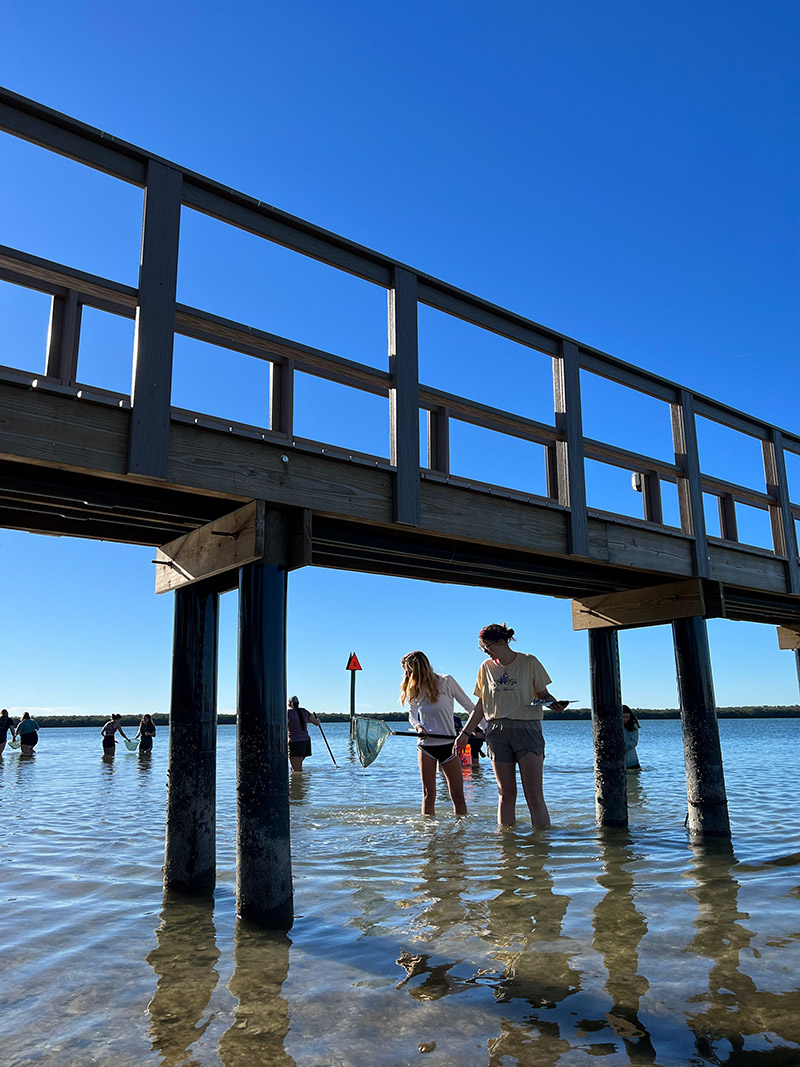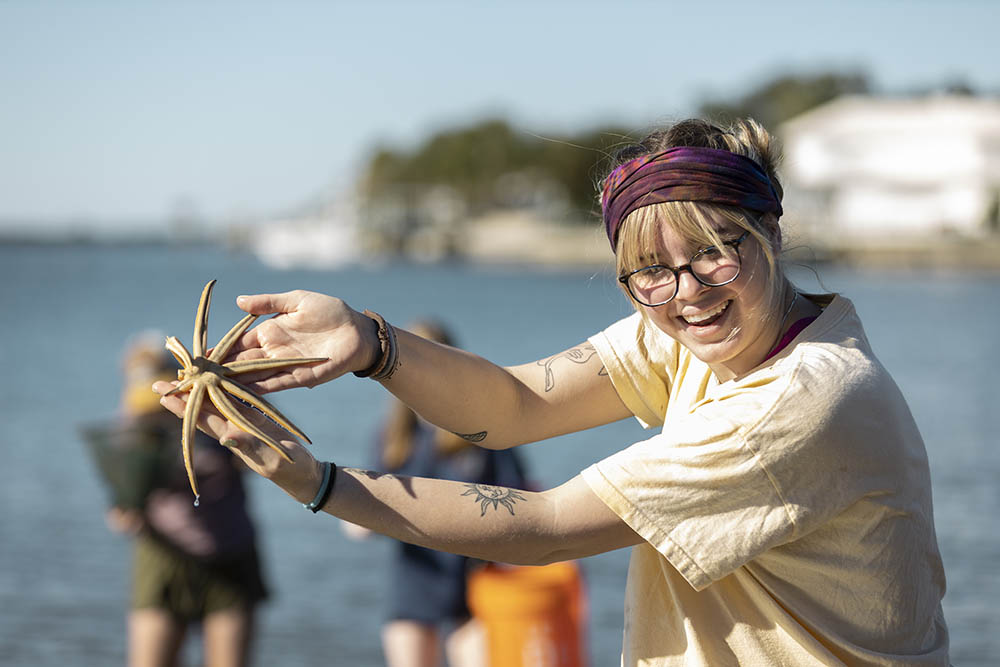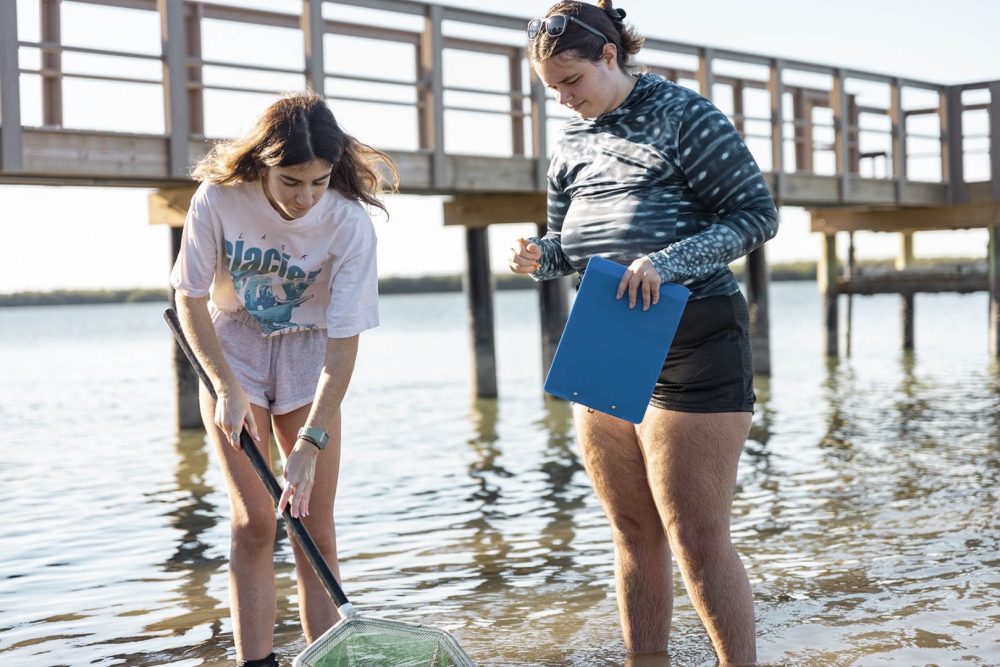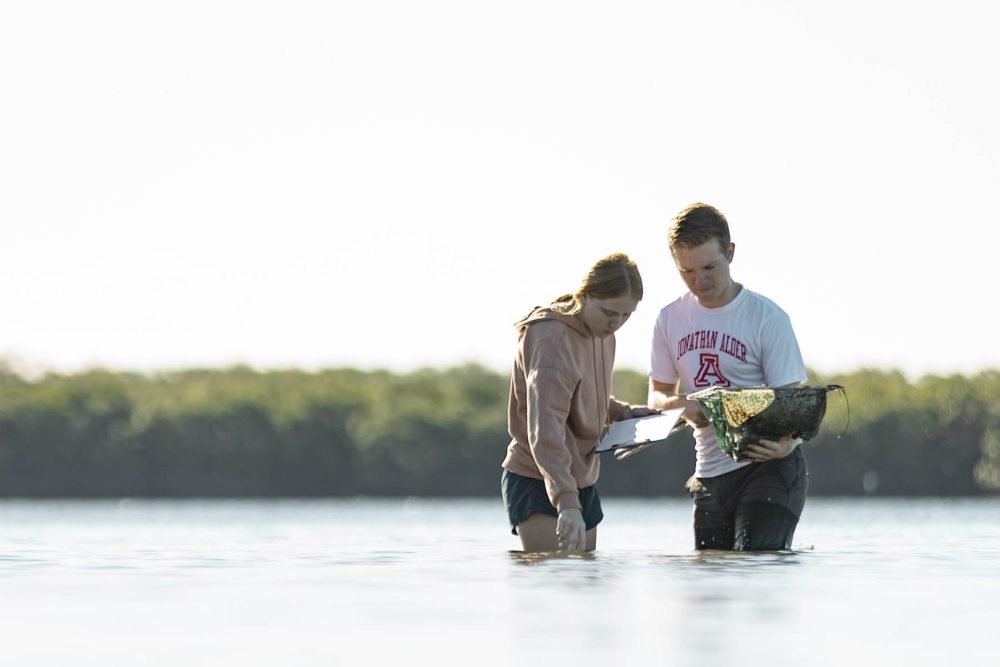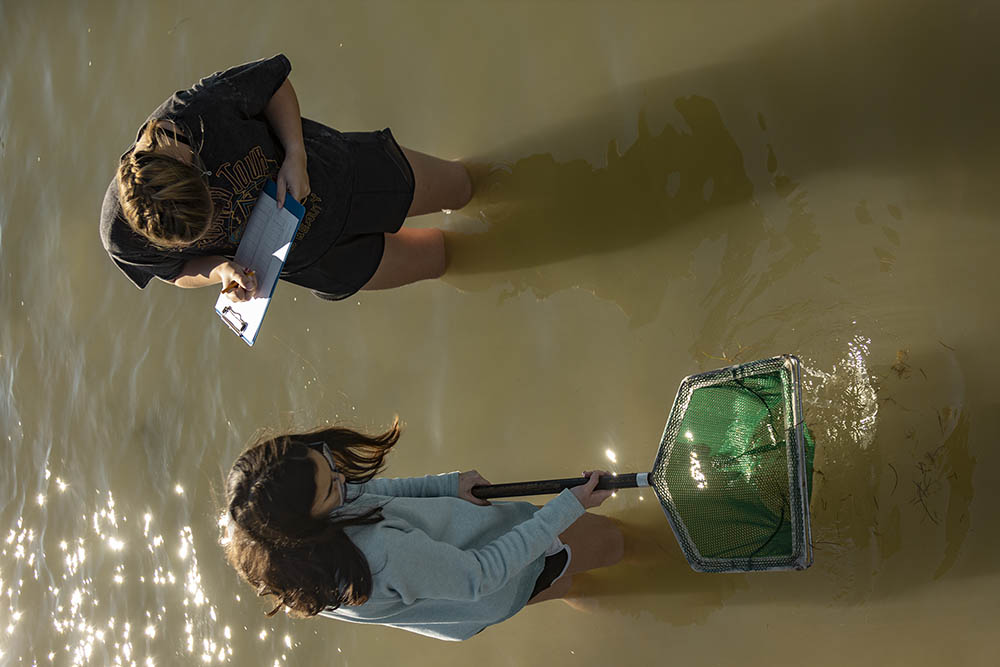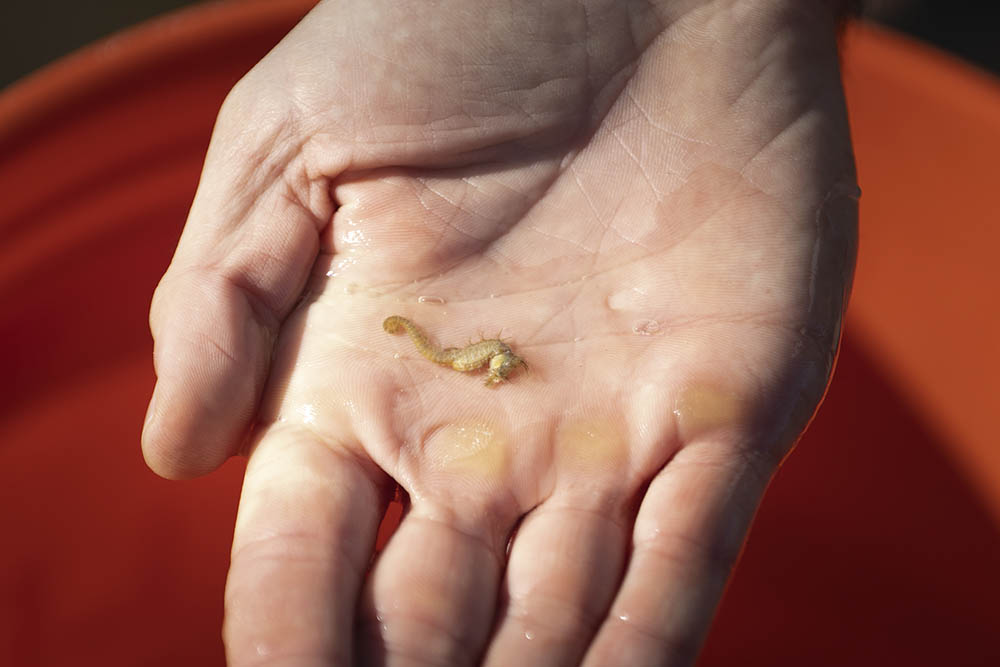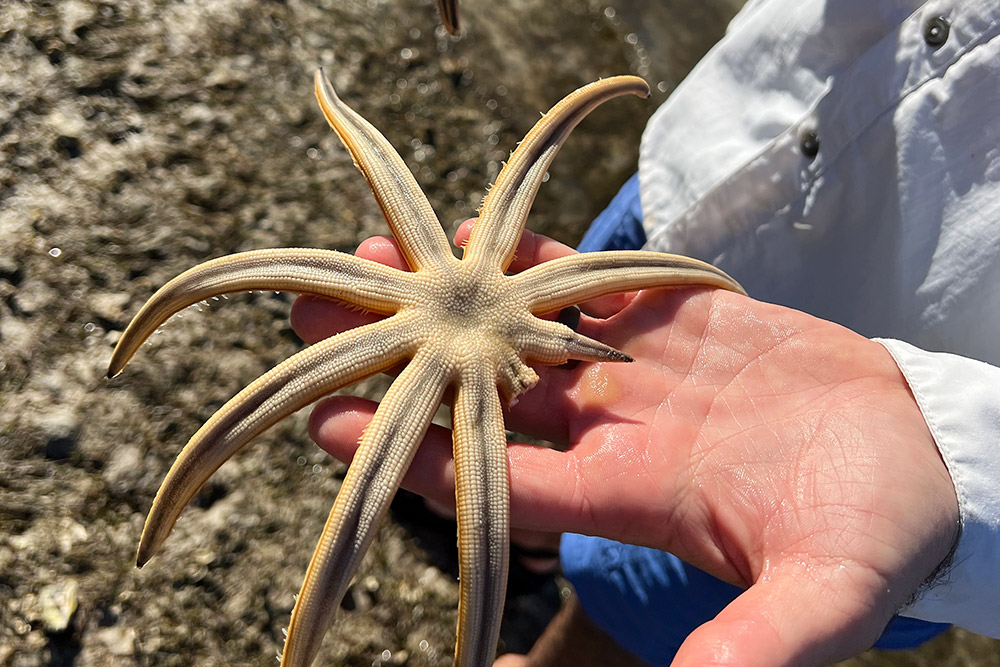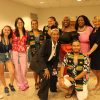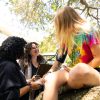On a brilliant winter morning behind the Galbraith Marine Science Laboratory on the Eckerd College campus, Thrall Hershberger reaches into his net and pulls out a needlefish. He records his catch, releases the squirming skinny fish back into Boca Ciega Bay, and wades to shore.
“I’m from the Pacific side of the country, and the Atlantic side is a whole different world, a different ecosystem,” says Thrall, a sophomore marine science student from Seattle, Washington. “Being out here, you can see all the diversity in such a small habitat.
“My big focus is conservation,” he adds. “I don’t want to see our world in shambles. I want to be able to do research and make people aware that there’s still time to change.”
Carrying buckets, clipboards and nets, Thrall and 17 other Eckerd students are thigh-deep in the chilly bay water looking for aquatic life to capture, record and set free—all part of Assistant Professor of Biology Jeffrey Goessling’s Ecosystems of Florida class, one of more than 60 Winter Term courses available to Eckerd students this January, both on campus and abroad. Goessling says the aim of the class is to “make students aware of how biologically unique Florida is, and to understand that uniqueness. First you have to understand, and then you can take action.”
Goessling, who has a Ph.D. in biological sciences, grew up collecting lizards, snakes and turtles near his hometown of Covington, Kentucky. He says many people think of Florida as largely sandy beaches and palm trees. “But there’s so much more to it than that,” he adds. “What makes Florida unique is its biodiversity.”
One of his Winter Term students is a business major. Another is a psychology major. “I find that encouraging,” Goessling says. “To watch them running back and forth talking about the things they’re catching, sometimes screaming with excitement … to me, their interest is what’s exciting.
“Florida isn’t just dolphins and manatees,” he adds. “It’s also indigo snakes and tortoises and a whole community of desert-adapted animals, many that made their way from Mexico millennia ago. Florida has the most biologically diverse habitat in the Southeast.”
Kelly Kress, a junior marine science and animal studies student from Freehold, New Jersey, says coming to Florida opened a new world to her. “Exploring the state parks and wildlife areas has been one of the highlights of my college career so far,” she says. “And it’s so intertwined with our environment here on campus—that connection to the very land we stand on.
“I like to be able to go outside and point out to somebody that that’s this type of bird or kind of tree. And so it’s hard not to feel a connection to conservation. I would like to be able to take this knowledge and apply it to different places around the U.S. and the world.” It’s also important, Kelly adds, “to do things outside of my comfort zone.
“I grew up in a small town and got very used to going into the city [New York] and seeing the streets packed. Then I got to Florida and you can be at a state park within five minutes. Now I spend 90% of my weekend exploring different areas.
“This course has really inspired in me the learning aspect of college. And it gets you really settled for the second semester. You go back a lot more refreshed.”
Slideshow of students collecting a variety of organisms—including sea stars, seahorses, crabs and fish. Photos by Penh Alicandro ’22
Field trips to Rainbow Springs State Park and Archbold Biological Station, near Lake Placid, are on the agenda before Winter Term ends Jan. 27.
“I study biology because I can’t imagine [studying] anything else,” Goessling adds. “It’s just innate. And a lot of our students have that passion too. When I see them getting excited about finding a certain animal or discovering something about our environment, I get that.
“I’m one of those people too.”

